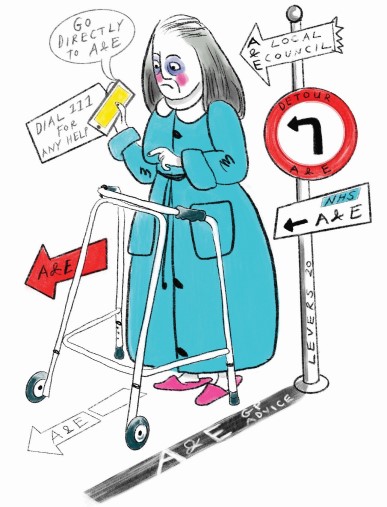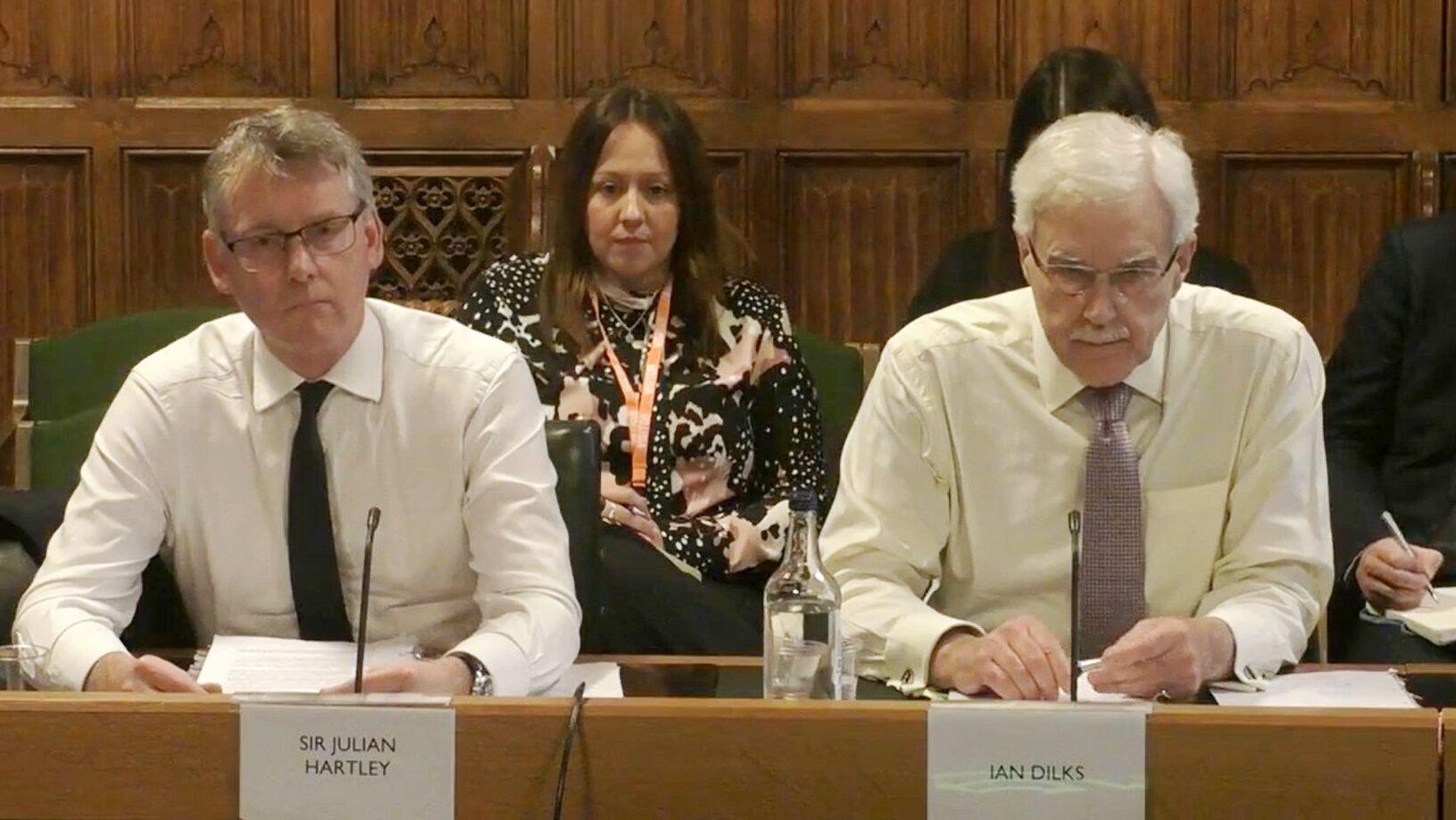So much effort, such poor outcomes
I spent 40 years building health services for elderly people living at home – then my mum fell ill, and those services let her down. In the post COVID-19 world, we must plug the gaps between primary, community and social care provision

“I’ve spent my career developing community and preventive services for elderly people, trying to improve the care that people receive in their homes and reduce avoidable hospital admissions. Over nearly 40 years, I’ve been involved in setting up dozens of community-based services for the elderly. But since my own mother developed dementia and other long-term conditions, I’ve been shocked to learn how those services work in practice – repeatedly failing to provide the preventive care she needs, then over-reacting and pushing her towards A&E.
I began my career as a clinician, part of a multi-disciplinary team developing preventive services for old people in council residential care. Then I worked for community, mental health and acute trusts – in both policy and delivery roles – before taking a job in strategic commissioning for people with long-term conditions. Finally, I became an independent consultant advising trusts on care for the elderly. So I’ve experienced a full, diagonal slice of NHS services in the field.
Then I became health and welfare attorney for my mum, and learned how the many services designed to support her in her home fail to form a coherent whole. No one organisation or person is responsible for mum’s care in the round. And each of those services, if they can’t cope at a particular moment, push her towards hospital. Without my regular interventions to prevent unnecessary admissions, she’d be in a nursing home by now.
Recently, mum’s carer called her GP to report she had a pain in her neck; the practice couldn’t provide an appointment, so said she should go to hospital. I intervened to suggest paracetamol and changing her pillows: problem solved. Another time she had diarrhoea, and the GP surgery advised calling NHS111; they said she should go to hospital. Last time this happened the hospital simply gave her immodium, so I pushed for that instead: problem solved.
Most of the individual clinicians who mum comes into contact with are great: caring, and keen to improve individual aspects of her health. But nobody ever sees how their work comes together – and if they see a risk they’re not confident they can eliminate, they often recommend she attend A&E. In an over-stretched system where individuals are incentivised to minimise risk, the hospital offers a place of safety for teams that lack the resources or staff to deal with an issue at the moment it arises. Yet reducing those teams’ responsibility for risk doesn’t always make for safer patient care; hospital admissions bring their own dangers.
Acute trusts are doing what they can to reduce unnecessary admissions: one’s just funded an emergency outreach team. But this is closing the stable door after the horse has bolted: some of the ‘emergencies’ they’ll handle could easily be avoided by more coordinated care in the community. Hospitals alone can’t control this stream of referrals.
Throughout my career, I’ve been proud of the care I’ve helped provide for individuals. But it was rare that I truly stood in the patient’s shoes, understanding how they experience services in the round – and that’s what’s required. We’ve built so many community services, but they’re like the layers of an onion: each wrapped around the patient, but separate from one another. Issues around budgets, responsibilities and organisational cultures make it hard to connect those layers; but looking back, I wish I’d done more to bring services together.
This wouldn’t require major organisational change: what’s missing is a connecting system that examines patients’ service use in its entirety, identifies their risk factors, and develops a preventive plan shared across the service providers. The care that elderly people have received should be reviewed annually, with staff predicting the problems that might come up and deciding how to ameliorate and respond to them. Primary care should play a leading role in this work – but it can’t be just their responsibility, or the other layers of the onion won’t have the incentive to connect. And the plans should consider patients’ social and community needs: non-medical support services can be powerful in improving people’s health and wellbeing.
The care and love my mum receives from individual NHS and care staff is great; yet the system is failing her. And we could transform her care without rebuilding organisations: we have most of the resources and people we need, but lack coordination and a single point of responsibility.
In looking after people like my mum more effectively, we’d also be looking after health and care staff. Currently they worry about risks they can’t manage, and do their best to head them off – but we end up with the wrong outcome. Instead we could reduce those risks, while ensuring that the system responds well if they do materialise – generating huge benefits not just for patients and their families, but also for the wonderful staff tasked with their care.”
The Sharp End is your chance to tell politicians, civil servants and organisational leaders how their policies affect you. Interviewees have full ‘copy approval’ rights, guaranteeing that articles fairly reflect their views and – where requested – protect their anonymity. This article was ghost-written by Matt Ross; to work with a reporter on your own story, email editor@healthcare-manager.co.uk
Related News
-

Regulating the managers: more questions than answers
The Labour government’s plans for regulating NHS managers are still shrouded in mystery, and the three options on the table each have their pros and cons. Rhys McKenzie weighs up the choices and gauges the views of MiP members on the best way forward.
-

The inspector falls: why the CQC needs a fresh start
After years of chaos, the Care Quality Commission urgently needs to rebuild trust and credibility with the public and the services it regulates. What needs to change and what are the priorities for new boss Sir Julian Hartley? Alison Moore reports.
-

Voice, value and vision: what analysts need from the NHS
Data analysts play a vital role in an NHS which is increasingly data-driven and focused on public health trends. But the NHS faces fierce competition for skilled analysts and many feel the health service fails to value them or fully use their talents. Alison Moore reports.